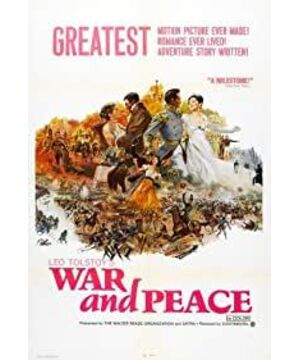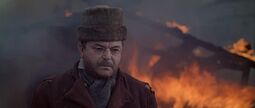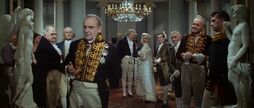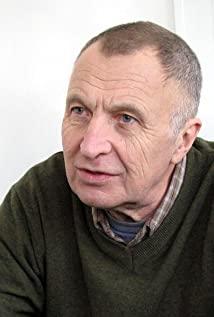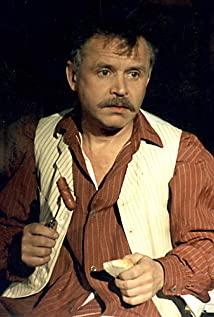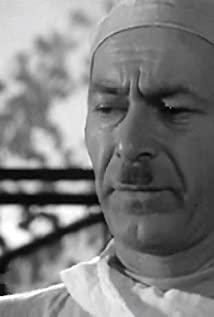Recently, I started to write about my impressions, the purpose is because I am old, and I am worried that I will forget all the movies I have watched, so I just keep this photo. While reading and writing, I also read film reviews on the Internet. There are some opinions on film reviews. Let’s use my impressions on the film "War and Peace" to talk about these views, but I am afraid that I will forget them in the future.
There are four versions of "War and Peace" that I know.
One is the American version, which was screened in 1956. Henry Fonda and Audrey Hepburn co-starred. Won multiple Oscar awards.
The second is the Soviet version before 1967. Directed by Bondarchuk and co-starred with Lyudmila and Tikhonov. Won Oscars and Cannes Film Festival awards.
The third is the 2007 version co-produced by many countries , starring Alexander Bayer and Klemans Posey . Strictly speaking, it should be called a TV movie.
The fourth is the 2016 version of the six episodes of the British BBC TV series. Starring Lily James and Paul Dano .
Among them, there is no way to comment on the 2007 edition. The other three have their own merits.
Let’s talk about the American version. The first time I watched it was in the 1980s. There were several famous roles in the film. The story is very strong and the structure is good. But there are too many cuts to see the profound themes and grand sentiments of the original work, and it lacks the kind of Russian complex. But I still like it. I think the film was made for Americans to see, and it is more about the viewing habits of Americans, so that everyone can understand the story and appreciate the story at a glance. In short, it is a well-made standard entertainment film.
Watch the six episodes of the BBC TV series. In terms of environmental design and plot description, it is very close to the original, but it is not enough to reflect the spirit of the original. In order to please the audience, several sex scenes were arranged, which became more and more inconsistent. In the upper-class society of Russia in the nineteenth century, such a naked display of sensuality was absolutely not permitted and was against morality. This is also avoided in Towon's original work.
What I admire most is still the Soviet version of "War and Peace." I watched it three times in total. The first time I saw it was in 1975. It was a so-called in-house movie. It was not the version of Shanghai Film Studio. It was completely in Russian. It was translated by a man and a woman holding microphones, wherever they played and where they were translated. . To be honest, the impression was not good the first time I saw it, and I felt too procrastinated. The Russian army hurried to the front line, but Pierre stood foolishly on the side of the road thinking. At that time, I was in my twenties, and of course I paid more attention to the development of the plot.
Writing a film review is, in the final analysis, describing your own feelings. This is of course the feelings here and now. As the environment changes and experience increases, people's feelings will change. For example, "Harry Potter", adults think it is just an ordinary children's book, but children as a textbook of life. Others say that Toon's "Resurrection" must be read after the age of fifty to barely understand. These different views may be commonly known as the generation gap, which is normal. No need to argue endlessly. Look at the changes in the environment. Young people around the age of fifteen are keen on online star-chasing videos. When I was fifteen, I didn't have so much entertainment, only reading books, so I read almost all the translated novels at that time. Therefore, the two generations will of course have very different views of society on life.
The same goes for watching "War and Peace". When I was young, I liked the American version because its story is much more interesting than the Soviet version. In the 1990s, when I saw the Soviet version for the second time, I felt different. One is because I am looking at the translation factory version, which is more straightforward to understand. The second is not only focusing on the story, but thinking about what Toon wants to tell us through his narrative of the Russian-French War and the upper-class life in Russia? I also got a preliminary understanding of the "don't resist evil" thought that Toon brought to people through Platon's mouth.
The third time I saw it was this year. Before watching the movie, I specially re-read the original work. Slowly watch it on the computer, and think while watching it. It seems that he is talking to Tolstoy himself. Seeing the conversation between Pierre and Andre at the riverside dock, and seeing Andre passing by the old oak tree twice, I felt an unnamed move. Fighting on the battlefield, Natasha's monologue in the moonlight, and hunting in the country manor in winter all reflect the unique national spirit of Russia. As Dostoevsky said: A truly great nation can never be willing to play a secondary role in the cause of mankind, or even unwilling to play an important role, but often and exclusively play a unique role. .
What is the point of writing a film review? My own feeling focuses on the content of the movie. This may be inconsistent with the thinking of many film critics. The external form only serves the content of the film. It's a pity that it's all reversed now. People are passionate about the anecdotes and lace news of role players, the feelings of visiting the class, the scheduling of the set, and the interviews with actors. What I care about is the plot of the film. Whether Lyudmila has an extramarital affair and Natasha’s experience is not half a dime, and Tikhonov’s salary has nothing to do with Andrey’s experience. Of course I also want to know who played Pierre? How is his acting skills? Fortunately, Bondarchuk met my expectations and created a real Pierre described by Toon.
In addition, I also know the data: In order to shoot "War and Peace", 125,000 troops, 1,500 horses, and approximately US$560 million in investment in the 1960s were used. In fact, it was just another battle. The Soviet side prepared 695 small cannons from the Napoleonic period in France and 587 small cannons from the same era in Russia, 20 of which were dragged in from the museum. Prepared more than 30 helicopters and 3 jets for aerial photography, 40 tons of fuel, 52 tons of explosives for smoke, 23 tons of explosives for gun fire, 16,600 grenades, 6,600 smoke bombs, 4,500 fuse wires . There are a total of 20,900 sets of clothing, and 47 workshops supply military uniforms/military caps/monk shirts, etc. for the film. Saddlery and leather waste are produced by two workshops. The Soviet Union spent two years building a fake Moscow covering an area of 100,000 square meters in the southwestern suburbs of Moscow, including residential quarters, authorities, and a complete Kremlin. It can be described as the only backstage in the history of world film. In the end, the fire burned to ashes, creating the scene of the fire burning Moscow.
These materials just let me know how expensive the film is and how serious the director is, and whether the film is good-looking, the key lies in whether the film is close to the original and whether it reflects the spirit of Toon. I lamented the grandeur of the war scenes in the film, and was surprised by the scale and luxury of the palace ball, but I was more concerned about the shaping of the character's core, which was moved by the fate of Andrea Pierre Natasha.
Of course, you must have your own point of view when writing a film review. Some film critics often expose some inside stories on the set, personal relationships with the director, dinners with stars, piled up with gorgeous words, eloquent and oblivious, but never talk about their own opinions. They can only say that these film critics "know", and It cannot be said that they have "knowledge". Good film reviews should be like Jin Shengtan in "Water Margin", Zhi Yanzhai in "A Dream of Red Mansions", and Huang Chang in Beijing Opera. There are compliments and criticisms, expositions and analyses. In short, you must have your own unique perspectives.
To express one's own views, of course, it is possible to make mistakes. But as long as it doesn't violate the laws of the country, I like to say what I say. If you say it is right, everyone encourages it; if you say it wrong, it can also play a role in attracting ideas. But try not to be too outrageous and try to get rid of personal prejudices. Especially don't always go to movies with ideological glasses. I have read a comment about the Soviet version of "War and Peace", he said: "The Soviet version has not been seen, but it has received a lot of praise. It is said that the shooting of the war scene used the Soviet Red Army and a thousand horses. Personal guess. The heroism of the Great Patriotic War and the revolutionary spirit of the Soviets." This guess is almost absurd.
When I write about my comments, the first purpose is to keep it for myself. Leave the current feelings and thoughts. After a few decades (if you haven't died), it's good to read it out and send some emotions to arouse memories. Put it on the Internet. Of course, friends are welcome to check it out. Do some textual organization so that your messy thoughts will not delay everyone's time. Like to watch, I will be very happy. If you don't like to watch it, don't watch it in the future. But I really don't have the energy to argue with whom. With this effort, I still watch a few more movies.
View more about War and Peace reviews


